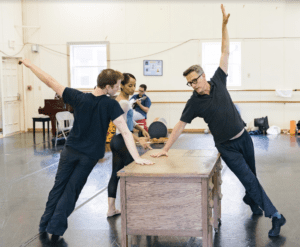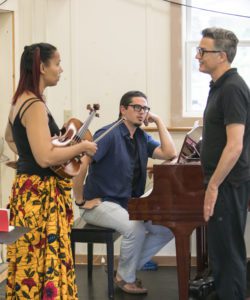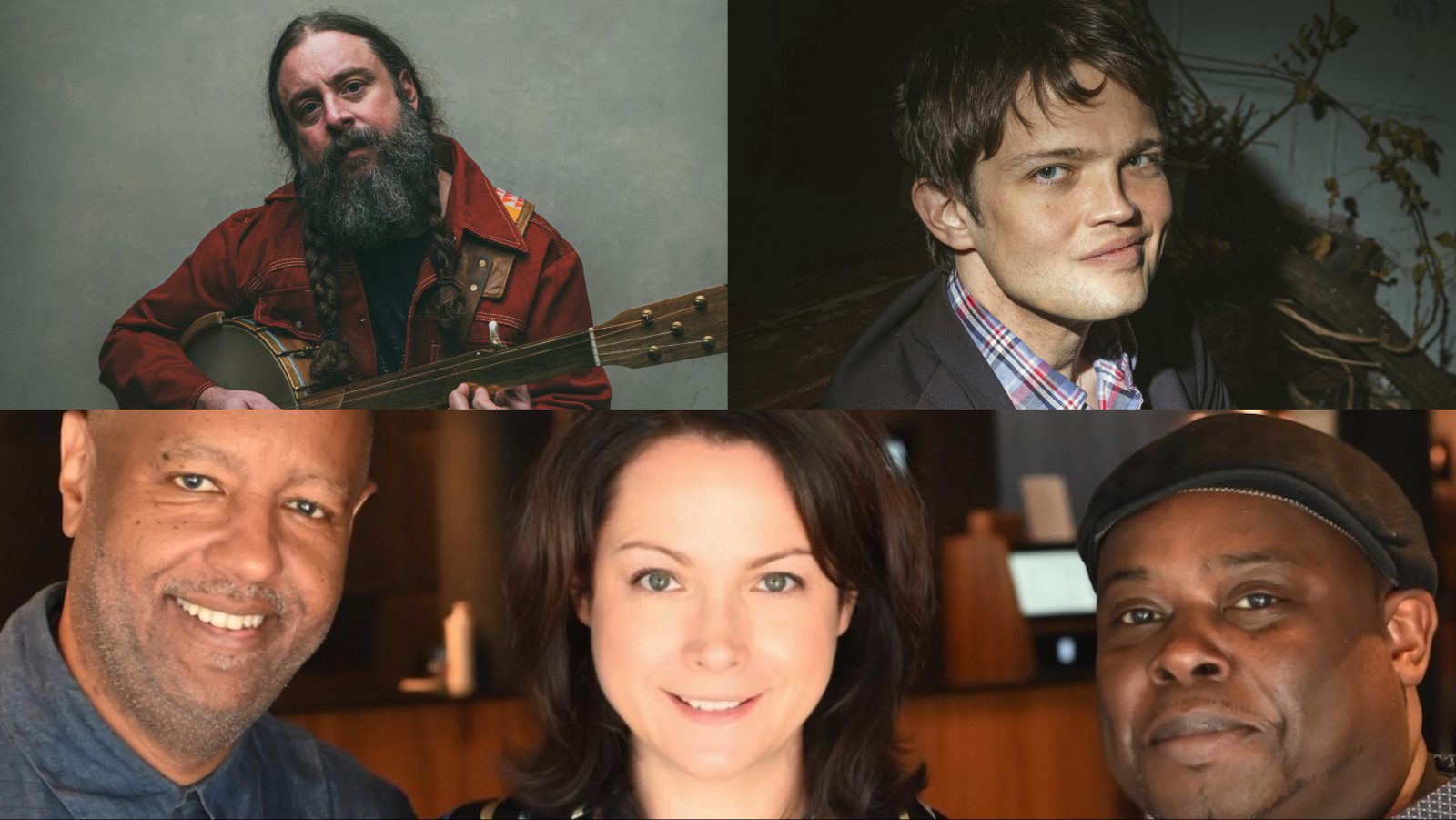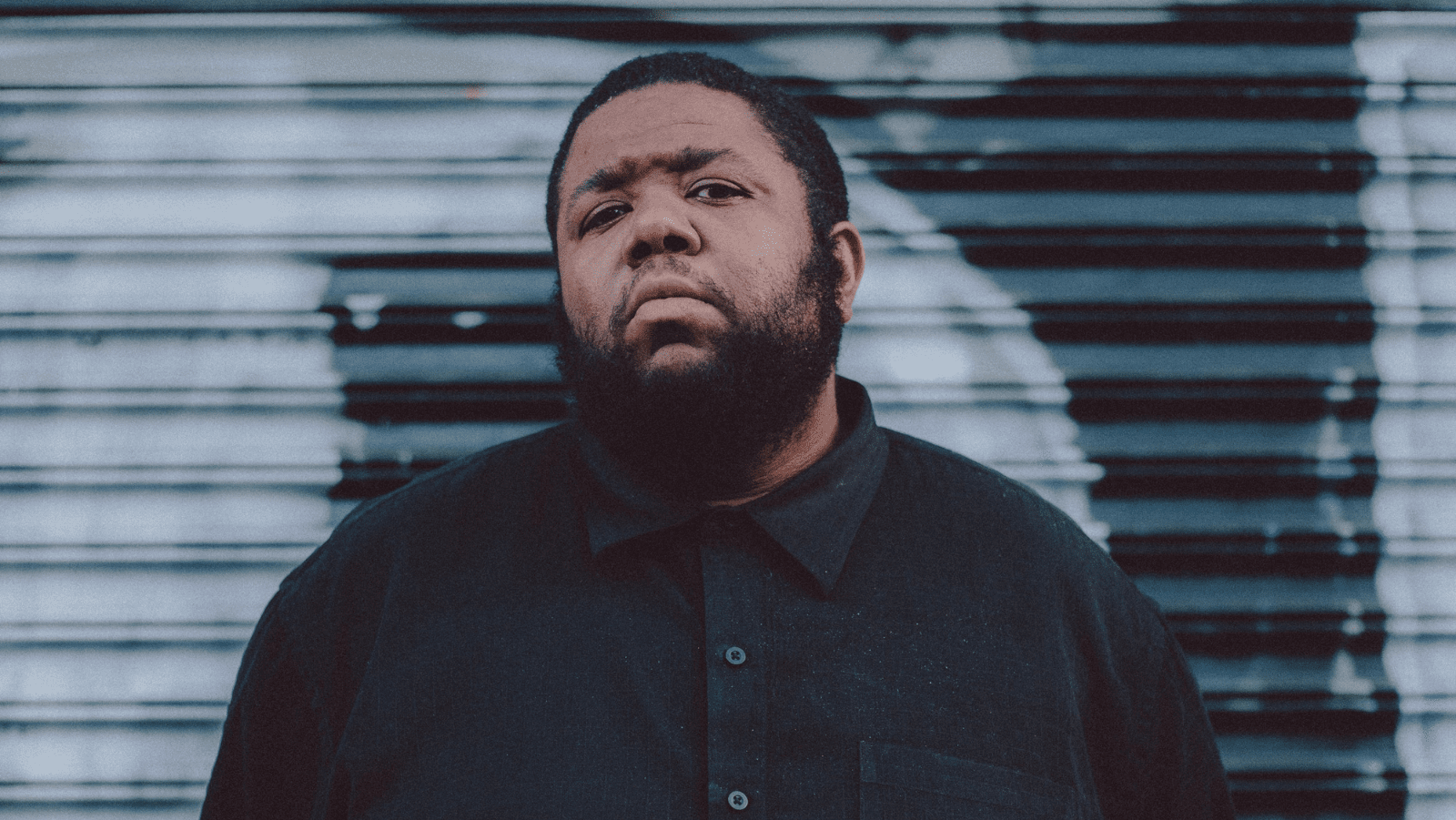The story behind Lucy Negro Redux, Nashville Ballet’s collaboration with Rhiannon Giddens
Sometime in 2015, a board member of the Nashville Ballet passed Paul Vasterling, the organization’s artistic director for two decades, a book in the hallway. It is a common occurrence, he admits, someone handing him an album or piece of writing they think he’ll enjoy. Sometimes, it may take months before he gets to them.
But Lucy Negro Redux was small, just 88 pages, so he supposed he could read the debut collection of poetry by Nashville native Caroline Randall Williams in a few hours. And he did. But the book, which explores the idea that the “Dark Lady” of William Shakespeare’s 154 sonnets was actually a person of color, soon turned into something of an obsession for Vasterling and a three-year project for the Nashville Ballet. In February, the organization will premiere its evening-length interpretation of Lucy Negro Redux—written and performed with Rhiannon Giddens and Francesco Turrisi—before bringing it to Big Ears for two performances in March.
“I immediately felt that it could be something on stage, but I wasn’t sure if it was a ballet or if I was the person to do it,” says Vasterling, who soon approached Williams with the impulse. “But after understanding where she wrote from, I felt more comfortable trying to bring this character to life.”

Williams was surprised but floored by the possibility; she had never imagined Lucy Negro Redux as a ballet or onstage at all. Instead, the book began humbly with the British tabloid The Daily Mail during her stint in graduate school at the University of Mississippi: “‘Dark Lady’ of Shakespeare’s sonnets ‘may have been London prostitute called Lucy Negro,’” read the headline. A lifelong Shakespeare fan interested in the secret history of powerful people of color, she followed the rabbit hole, even reaching out to Duncan Salkeld, the British professor whose research had prompted the piece.
“History has been running after this women, wondering who this person he was writing to was,” says Williams, the thrill of the discovery still evident in her voice. “As a black Southern woman, I could now read lines like ‘Then will I swear beauty herself is black’ and think he might have meant this black woman he knew and loved. I took that idea and ran with it.”
When Vasterling first reached out to Williams and asked who she might like to partner with on such a project, her realization that this was a possible piece of hidden black history, now uncovered made the answer easy: Rhiannon Giddens, who had unearthed and replanted the African-American roots of folk music with the Carolina Chocolate Drops and on her solo records. Giddens’ name remains in the notes Vasterling jotted down on his copy of Lucy Negro Redux during his first call with Williams.
“She asks current questions of old things, and she spends a lot of time in the same creative space in terms of what she hopes her art can do,” says Williams. “What we do is revisit things in order to deepen understanding of history and to allow history that has been whitewashed to matter to people who look like us.”

Vasterling and Williams pitched the idea to Giddens at an after-show soiree hosted by Williams’ mom, the renowned writer Alice Randall. She was intrigued but busy, with commitments to Broadway and television and festivals all around the world. The next time she and Vasterling spoke, though, she had just won a MacArthur “Genius” grant, which allowed her to take on true passion projects. This became one.
“There are more tenuous theories out there about things that are taken as gospel, and we’re making art from it, so we’re just saying this is a possibility. It’s cool to write music not only for that idea but Caroline’s response to that idea,” says Giddens of Lucy. “And it fits into the worldview that is coming into place for me—that we’re all more connected than we like to think.”
This ballet is a first for Giddens and Williams, who agree that Vasterling helped make the idea of crossing into that world seem less intimidating. Williams will read Vasterling’s libretto, adapted from her poems, during the performance, while Giddens and Turrisi play the score. Kayla Rowser, an African-American ballerina from a small town in northern Georgia, takes the role of Lucy, an act of representation that echoes the essence of Williams’ and Giddens’ work.
“Our missions,” Giddens says, “really meet in this score.”


